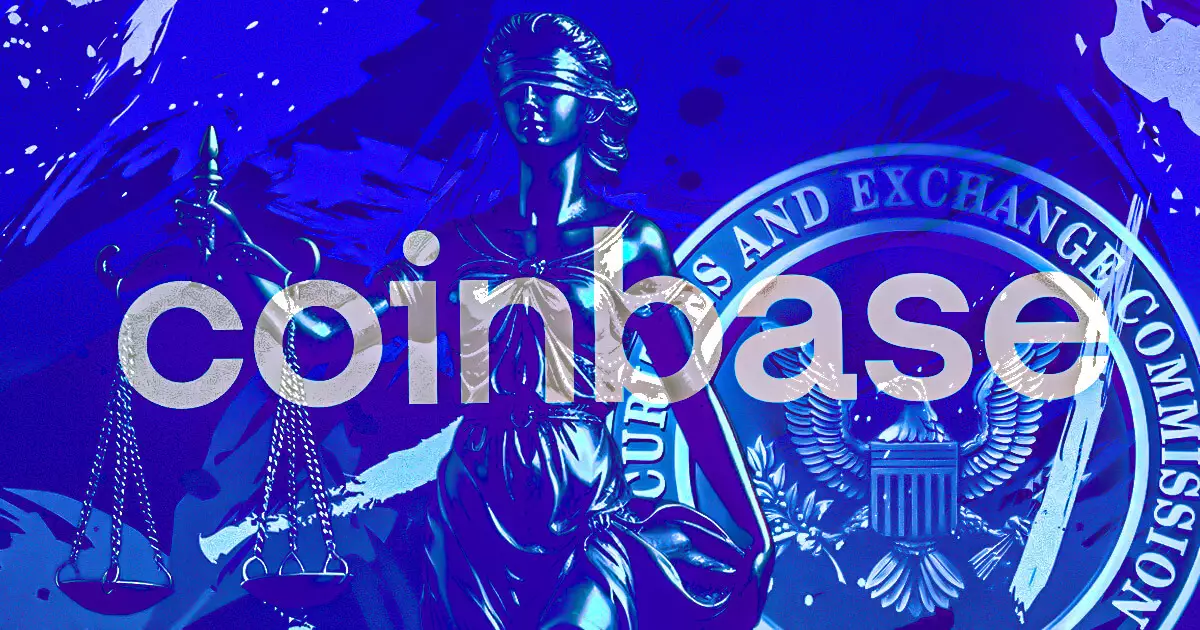In a significant development for the cryptocurrency market, Coinbase has reportedly reached an agreement with the Securities and Exchange Commission (SEC) to dismiss a contentious enforcement case, pending final approval. This agreement has not only reignited market enthusiasm but has also pushed Bitcoin prices beyond the $99,000 mark. The resolution, borne out of a lengthy legal dispute, raises critical questions regarding the boundaries of regulatory authority and the classification of digital assets. At the heart of this legal battle is the assertion from Coinbase’s leadership that the SEC’s actions were overreaching, threatening both business operations and the broader framework of the cryptocurrency ecosystem.
The friction between Coinbase and the SEC began when the latter sought to compel the delisting of certain assets, which Coinbase argued were not securities. This legal confrontation was not merely a clash of interests; it encapsulated a larger debate about regulatory reach in a quickly evolving digital landscape. According to Coinbase CEO Brian Armstrong, the SEC’s demand was an infringement of its statutory authority. Armstrong’s statements on the matter indicate that the crux of the issue was not just about the company defending its business model but more so about establishing a legal definition for cryptocurrencies that distinguishes them from traditional securities.
The anticipated dismissal of the enforcement case is noteworthy for several reasons. Firstly, it comes without any financial penalties or modifications to Coinbase’s existing operational practices. This signifies a crucial victory for Coinbase, presenting a landmark moment that could guide future interactions between crypto firms and regulatory bodies. Armstrong expressed optimism that the case would soon be dismissed entirely, viewing this outcome as a validation of Coinbase’s legal approach and a proving ground for the potential of legal frameworks to shape regulatory practices.
The implications of this resolution extend far beyond the contours of Coinbase itself; they resonate throughout the entire cryptocurrency sector. Many stakeholders view this as a landmark moment that could influence regulatory clarifications in the future. Armstrong’s public statements highlighted the importance of ensuring that regulatory actions align with established legal principles, a sentiment echoed by many within the industry who believe that clarity in regulations is essential for fostering innovation while still offering protections for investors.
Moreover, the resolution of this case might provoke legislative discussions aimed at establishing more transparent regulatory guidelines. Given the complex and sometimes ambiguous nature of cryptocurrency regulation, clarity has become a pressing need for companies operating in this space. The legal landscape has often been characterized by rapid change and unpredictability, which can stifle innovation and investment. Thus, the culmination of this particular legal episode may serve as a catalyst for more comprehensive legislative action.
As the cryptocurrency market adjusts to the news, there is a palpable sense of cautious optimism among investors and industry advocates alike. The agreement underscores the delicate balance that exists between investor protection and promoting an environment where digital assets can flourish. The negotiations surrounding this case may act as a template for how future enforcement actions are approached, emphasizing the necessity for dialogue between regulators and crypto companies.
Ultimately, the Coinbase-SEC saga exemplifies the broader struggle for clarity in the regulatory landscape governing digital assets. As the dust settles, both market participants and policymakers are called to reflect on the evolving relationship between innovation and regulation. Moving forward, the ongoing discourse regarding the regulatory framework that governs the crypto landscape will be vital for its long-term health and sustainability. In this ever-changing context, the Coinbase agreement could herald a new era of collaboration aimed at fostering innovation while balancing necessary safeguards for investors.















Leave a Reply